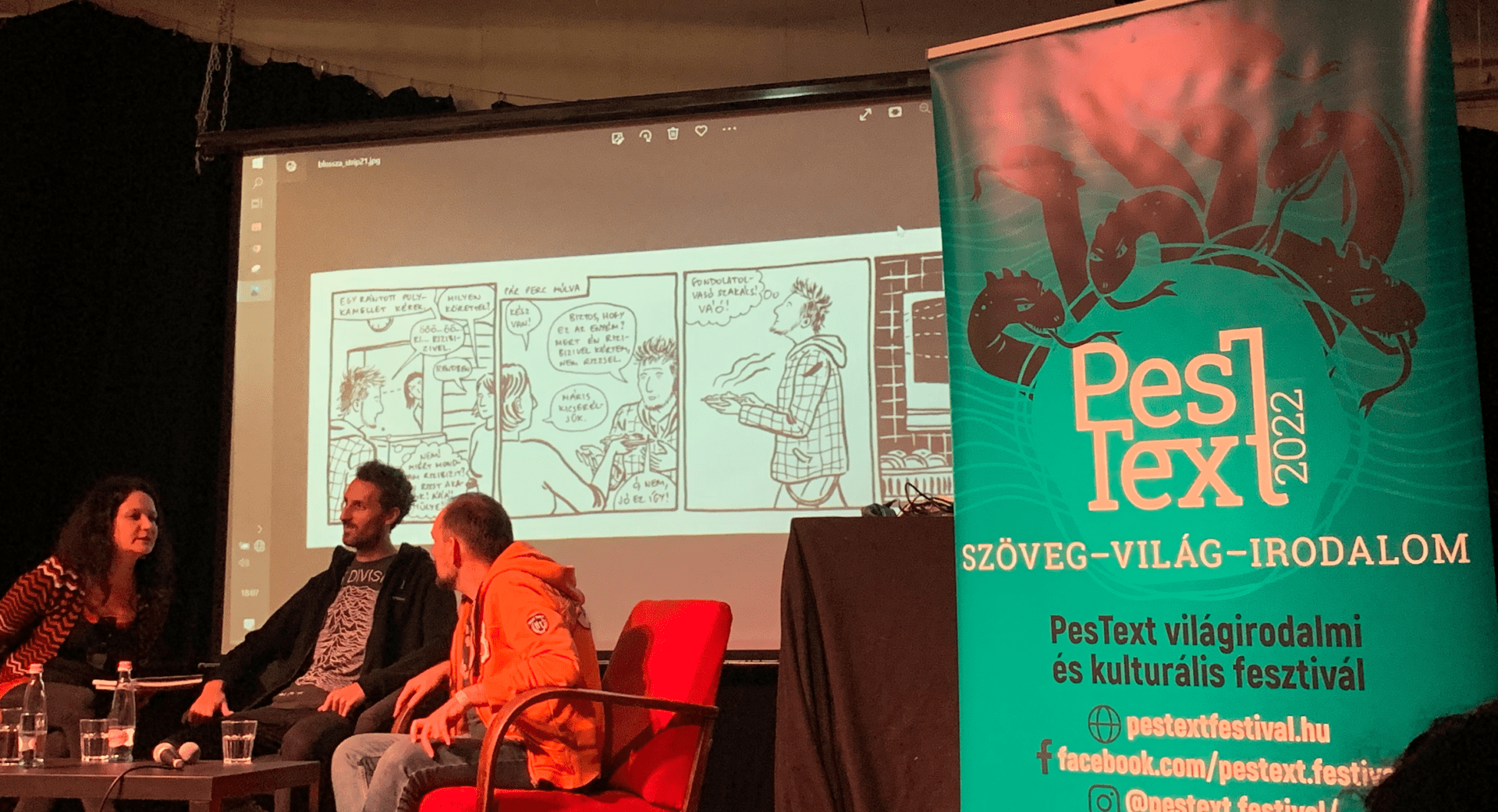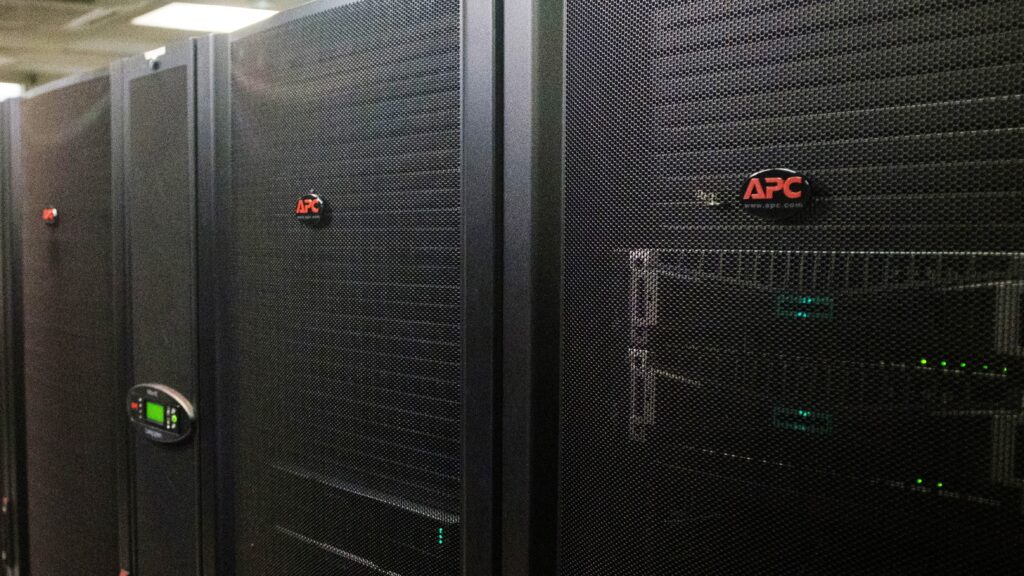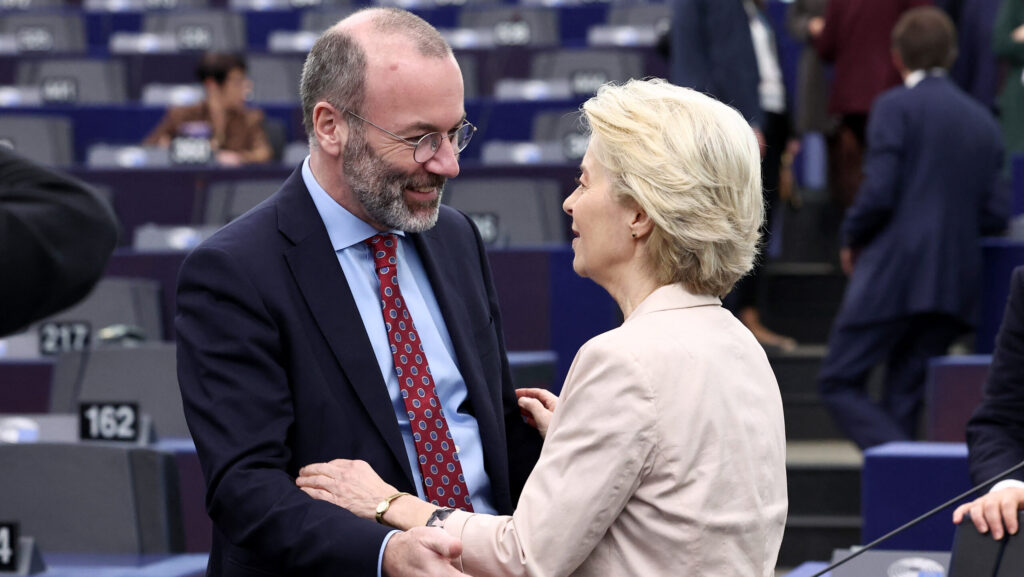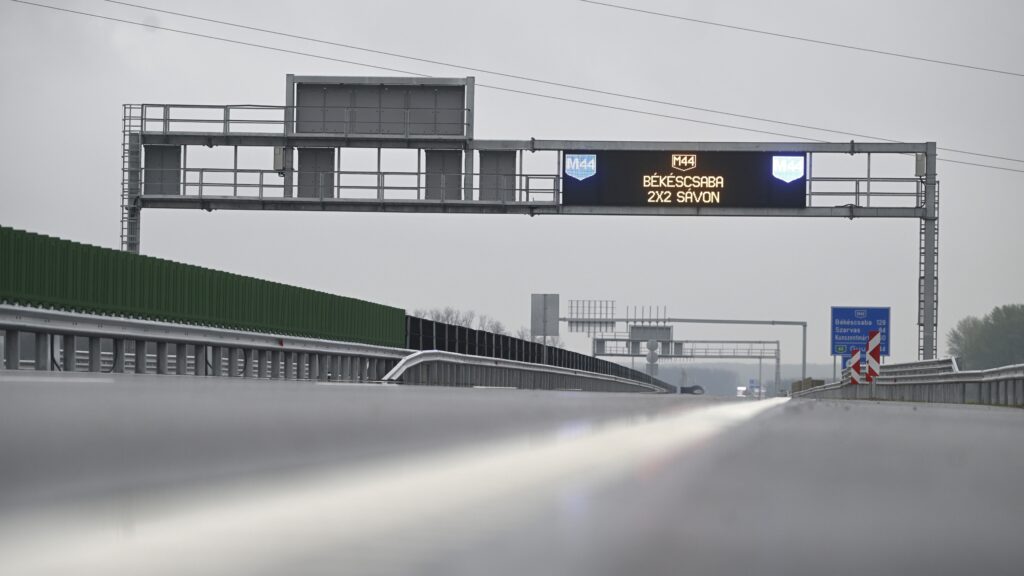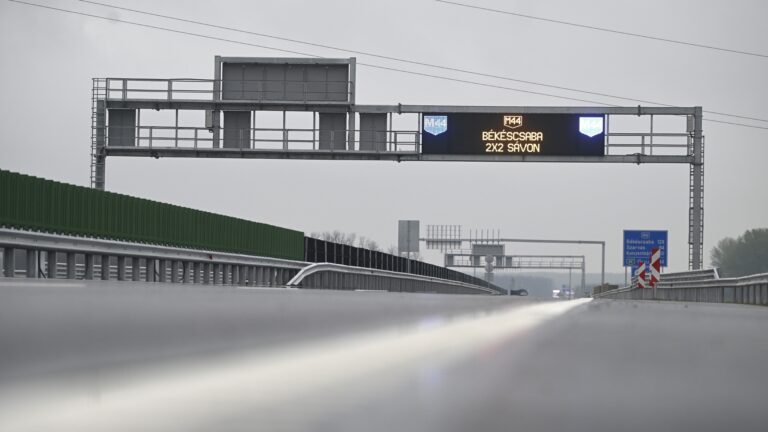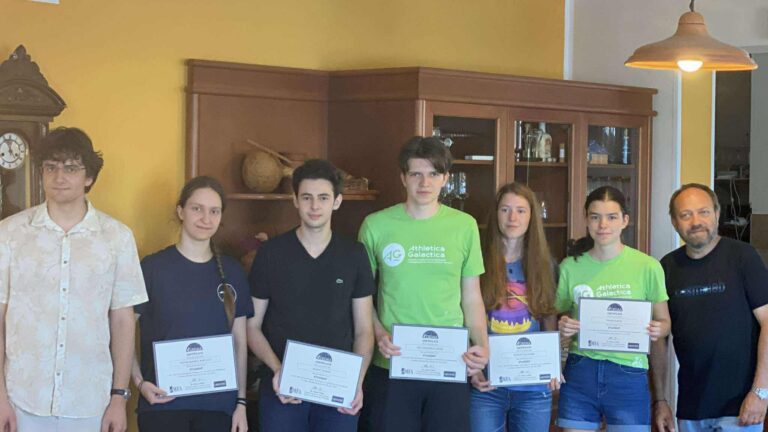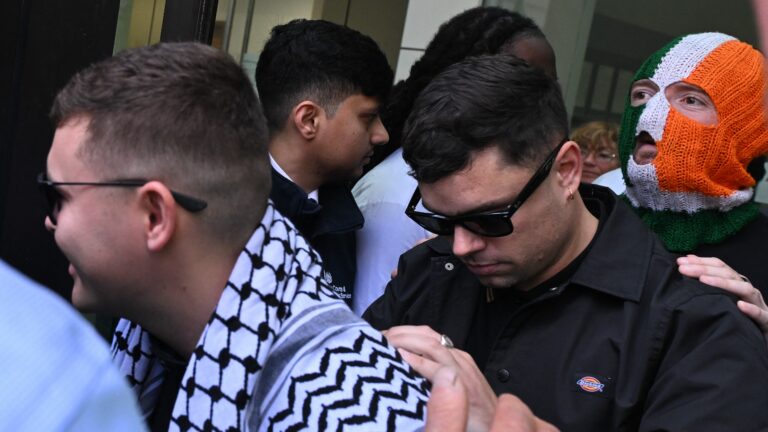Comics in Focus
The PesText Festival, founded in 2019, was held between September 23 and October 1 this year. Thursday, 29 September was dedicated to the medium of comics. Under the title ‘Comic Celebration’, most of the events during the day and night were focused on and based around comics, their messages, and their creators. Most discussions and events were hosted in Budapest, at the Három Holló (Drei Raben or Three Ravens in English) coffeehouse, a prominent cultural and literary events venue. When one enters the café, its décor instantly gives away the fact that it replicates a literary coffeehouse of the historical Budapest. Everything is about literature here–even the Wi-Fi password is a reference to one of the greatest Hungarian poets.
In the late afternoon of Thursday, the venue started to experience larger than usual traffic. As one approached, the first thing that caught one’s eyes were the rollup banners in front of the entrance signalling that ‘PesText’ was happening right there and now. After guests found their way to the sub-basement they were guided to a room where printed comics were decorating the walls. This is where the opening ceremony took place. The hosts first introduced the events and the guests of the evening, and then gave a presentation about Hungarian contemporary comic artists, their inspiration and their goals. The guests of the evening included Marabu, a newspaper caricaturist and comic artist, who spoke about the difficulty of being a comics creator in a world where print media is a dying form. Lilla Petra Marjai was also introduced—she is a motion designer, illustrator and comic artist who has made quite a name for herself in Hungary. The discussion focused on some of their works that also were presented to the audience, and on the ways the two artists navigate a rather difficult art form in the current digital world.
Main Events
After the introductions and the short discussion guests were guided to the basement, which is quite unique in Budapest. At first glance, it resembles an underground parking garage, with concrete walls and pillars that give the space an authentic, literally ‘underground’ feeling. The stage, by contrast, was warmly lit and was covered with a beautiful rug. The whole ambience and the manner in which the discussions were conducted created a cosy feeling—it was as if we were not listening to arranged and moderated discussions, rather at a friendly chatter at a friend’s house, where old stories and anecdotes are shared.
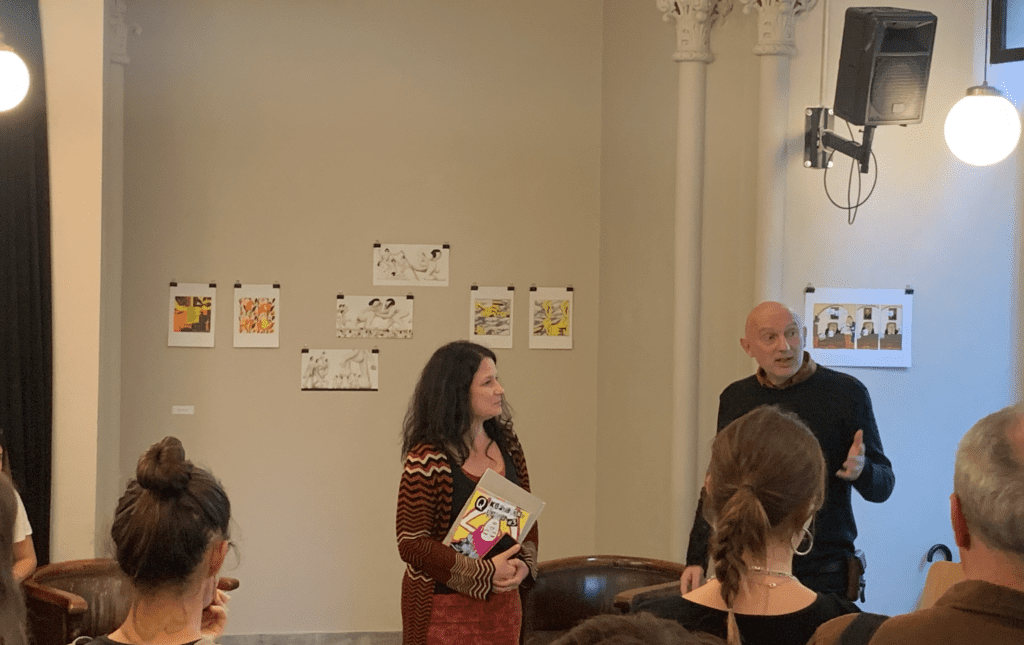
The first discussion was moderated by cultural writer Niki Szekeres. Her guests were two Hungarian comic artists, Gergely Oravecz, and Dávid Cserkuti. The two men are cut from a different cloth, however, their commitment to creating quality art and their professional reputation connect them. The discussion focused mainly on how the two artists got hooked on comics, and how they started creating them. Works from both were shown on a projector on stage, with some analysed in detail. Mr Oravecz talked about his passions and explained that he is glad that early on in his career he realised that comics can be about the artist’s life, and do not necessarily need to include superheroes and fighting. Mr Cserkuti explained that he considers himself as someone who ‘basically sells his body’, as he only works when he is commissioned to do so. He also talked about how he would rather create his own art, however, in this field, it is difficult to be that independent, he explained.
The second discussion was moderated by Eszter Szép, comics researcher and educator, whose guests were Berct Evens and Hannah Berry. Evens paints with gauche and Berry creates comics using acrylic paint. The two artists talked about their personal lives and career paths, touching on subjects such as how unpredictable their journey was, and how they managed to put their lives’ stories into books.
After the living-room-like discussions, a unique and revolutionary event began—Rozina Pátkai and DJ Bernáthy were invited to provide music and create a party atmosphere for the guests, however, it was not a regular concert. The invited artists created stunning impromptu illustrations, shown on a projector, to the music that was being played, providing a truly unique experience to all those in attendance.

